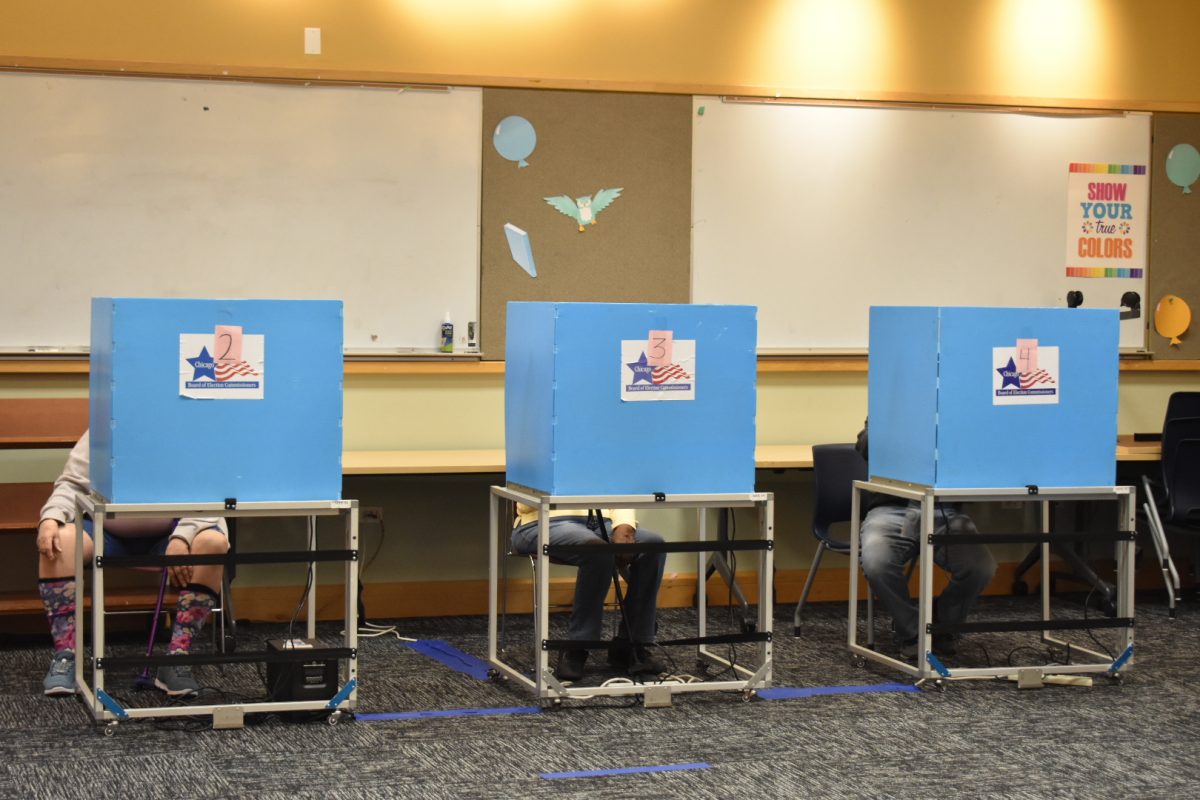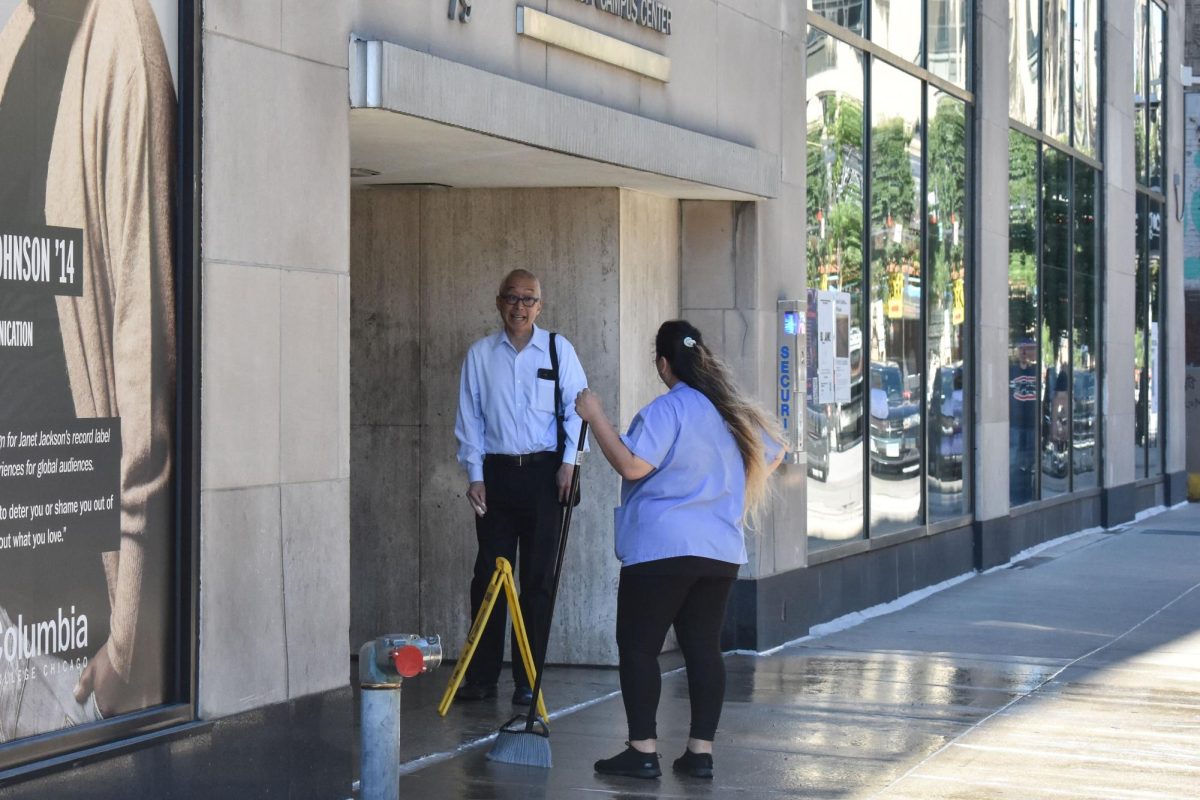Columbia is on the brink of becoming a Hispanic-serving institution, with 24% of the student body identifying as Hispanic.
But students like Carla Rios, a junior American Sign Language major, said there isn’t enough communication from the college in Spanish, especially noticeable during the part-time faculty union’s historic strike.
“It’s just more about language accessibility, always having the right to have that information, rather than just being in the dark and being told secondhand,” Rios said.
The lack of communication with Spanish-speaking parents was brought up during a faculty forum with campus administrators on Tuesday, Nov. 14. Sharon Ross, associate professor in the Cinema and Television Arts Department, shared that a Mexican American student was struggling to interpret strike updates for his parents.
She asked if there was a way for non-English speaking parents to learn about the strike from the college. “His parents are really panicked,” she said.
President and CEO Kwang-Wu Kim responded in the forum that this was the first he’d heard of the issue. But he pledged that the college “will now” make an effort to make the information more accessible.
After the forum, an interactive button was added to the strike updates from the college, allowing students and parents to translate the information. However, Steve Brizuela Fernandez, president of Latino Alliance, said the college should provide the translations directly and in multiple languages.
“I think Columbia should remember that it’s a diverse school,” he said.
Fernandez, a senior music business major, has only been able to explain a small portion of strike negotiations to his parents because he feels like he is not informed enough about it and can’t translate it properly into Spanish.
Senior fashion design major Norma Espinoza said even if updates are sent in Spanish, her parents won’t be able to understand because they speak a mixture of Spanish and Nahuan. Espinoza will still have to translate to her “dialect.”
“Trying to translate from English to Spanish and then to my kind of Spanish … is even harder,” they said.
Although their parents understand both languages, Diego Martinez, a junior music business major, has found it difficult to explain what the point of the strike is. He believes that differences between Latinx and American cultures are a key factor.
“The concept of a strike itself, at school, sounds very foreign to them,” Martinez said. “I don’t think they [understand] the gravity of the situation.”
Elizabeth Barajas-Vasquez, vice president of the Student Government Association, said regardless of language, parents should be able to access important information since most are supporting their children throughout their college career.
“Language, in some cases, can make things accessible but can…also put up barriers in terms of accessing things like the student experience,” Barajas-Vasquez said, who is a senior English major.
Barajas-Vasquez’s parents have many questions about whether she will be able to earn enough credits to graduate due to the strike.
“A lot of the anxiety comes from not understanding the situation,” she said.
Spanish Digest:
Después de un reciente foro de la facultad con los administradores, se agregó un botón interactivo a las actualizaciones de la huelga de la universidad, lo que permite a los estudiantes y padres traducir la información. Sin embargo, Steve Brizuela Fernández, presidente de Latino Alliance, dijo que la universidad debería proporcionar las traducciones directamente y en varios idiomas.
Elizabeth Barajas-Vásquez, vicepresidenta de la Asociación de Gobierno Estudiantil, dijo que, independientemente del idioma, los padres deberían poder acceder a información importante, ya que la mayoría apoya a sus hijos a lo largo de su carrera universitaria.
















